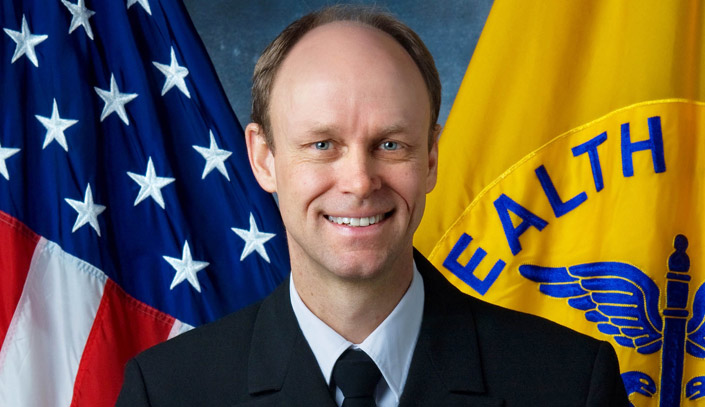A top official from the Centers for Disease Control and Prevention (CDC), who spent six months working to help control the Ebola epidemic in West Africa, including five weeks in Liberia last fall, will discuss the scale of the unprecedented outbreak and the response by the CDC at a lecture at UNMC Monday.
Omaha native Jordan Tappero, M.D., M.P.H., director of the Division of Global Health Protection (DGHP), Center for Global Health, will give the presentation “CDC’s Response to Ebola in West Africa,” at 1:15 p.m. Monday in the Sorrell Center, Room 3002. The grand rounds, part of UNMC’s observance of Public Health Week, is open to faculty and students.
Dr. Tappero, a 1982 graduate of UNMC’s College of Medicine, was in Liberia in 2014 as incident manager for CDC teams in West Africa, and as the first CDC Lead for the Public Health and Medical Response for the United States government’s (USG) Disaster Assistance Response Team (DART). Upon returning to Atlanta in late September, he has served as deputy incident manager for the CDC director’s ebola response through January 2015, where he assisted with directing the day-to-day international and domestic response activities managed through CDC’s Emergency Operations Center.
A 1976 graduate of Omaha Westside, Dr. Tappero is a former CDC colleague of Ali S. Khan, M.D., M.P.H., dean of UNMC’s College of Public Health.
“Jordan can provide a truly unique perspective on what’s happening in West Africa,” Dr. Khan said. “I am grateful he reached out to me and offered to speak on our campus — his alma mater.”
Dr. Tappero said that work in West Africa has been nonstop.
“I have seen what needs to be done to stop Ebola from spreading. But the scale of this Ebola outbreak is unprecedented,” Dr. Tappero said. “In 2014, the systems in place to identify, refer, isolate and treat Ebola cases were overwhelmed. Knowledge of how the disease is spread varied from community to community, and unsafe burial practices were taking place far and wide. Though the global response has vastly improved, our work there is ongoing. We are committed to getting to zero cases of Ebola transmitted, and to public health system recovery efforts post Ebola.”
As part of the CDC and DART teams, he helped find people with the virus in the community, get them into Ebola treatment centers and improve infection control practices to prevent the spread of the virus to health care workers and burial teams.
